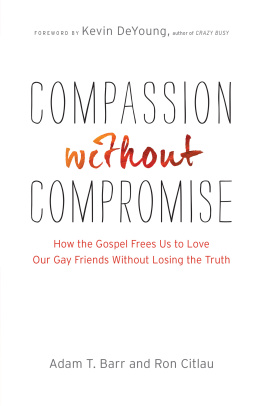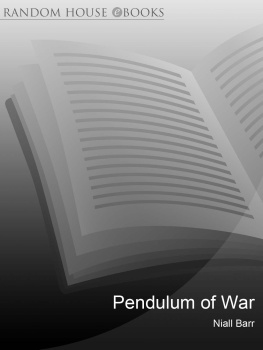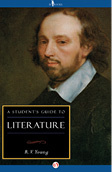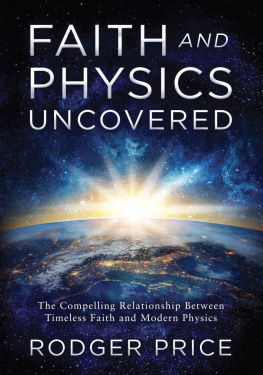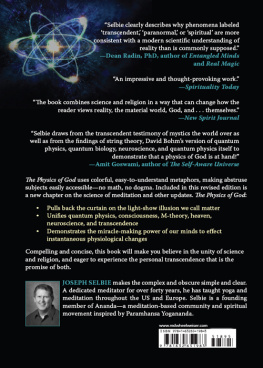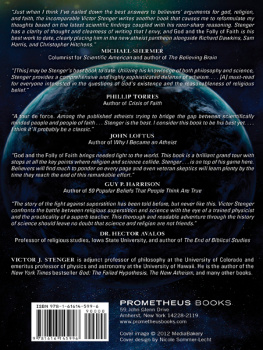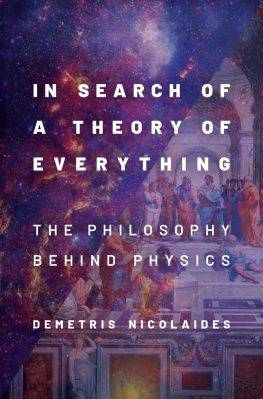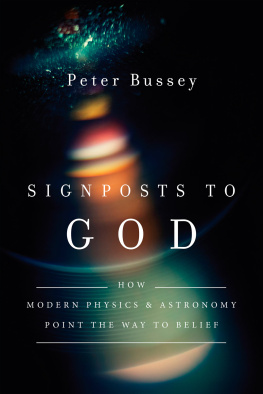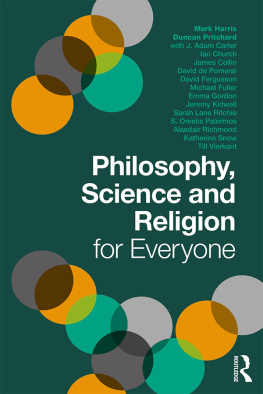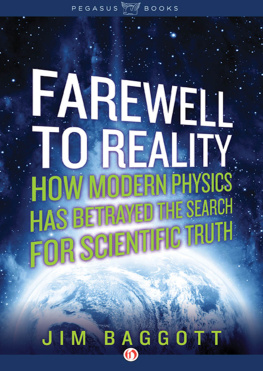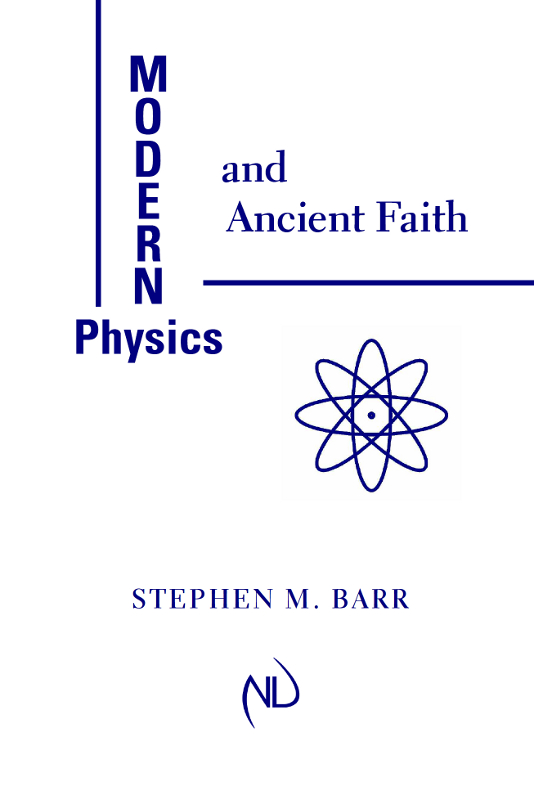
Modern Physics and Ancient Faith
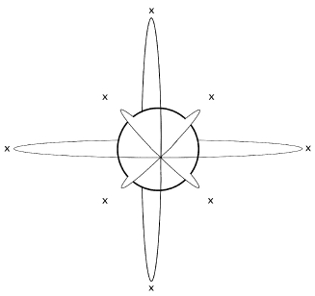
Stephen M. Barr
University of Notre Dame Press
Notre Dame, Indiana
Copyright 2003 by University of Notre Dame
Notre Dame, Indiana 46556
www.undpress.nd.edu
All Rights Reserved
eISBN 978-0-268-07592-7
This e-Book was converted from the original source file by a third-party vendor. Readers who notice any formatting, textual, or readability issues are encouraged to contact the publisher at
Contents
Appendices
Before all I thank my parents, Mary Ahern Barr and Donald Barr, to whom, humanly speaking, I owe everything. I thank my patient wife, Kathleen Whitney Barr, and our children, Thomas, Gregory, Victoria, Elizabeth, and Lucy, from whom I stole the time to write this book. My three brothers all played critical roles. William goaded and pressured me into actually writing the book. Hilary inspired me by his own literary endeavors. Christopher disagreed with me about a lot of things and forced me to sharpen or rethink my arguments.
I thank the Fellowship of Catholic Scholars. The opportunity to speak at their 1987 convention gave me the occasion to put some of my thoughts in order. I am greatly indebted to the journal First Things, and all the people connected with it, especially Fr. Richard John Neuhaus. Writing for First Things has been invaluable in many ways. Reviewing books for it gave me needed experience in writing and forced me to read numerous works that have been of use in preparing this book. I thank Professor Peter van Inwagen of the Philosophy Department of the University of Notre Dame for taking an interest in this project (despite disagreeing with some of my philosophical views) and helping to get the interest of the University of Notre Dame Press. I appreciate the efforts of the people at that press, in particular Jeff Gainey, Julie Beckwith, Ann Bromley, Christina Catanzarite, Rebecca DeBoer, John de Roo, Margaret Gloster, and Wendy McMillen, and of those who acted as readers for the press. My special thanks to Mark DePalma for help on the figures.
Finally, I wish to thank all those who have been willing to discuss with me questions concerning science and religion over the years.
The Conflict between Religion and Materialism
The Materialist Creed
In recent years there have been a great number of books written on science and religion. Some of these books claim that science has discredited religion, others that science has vindicated religion. Who is right? Are science and religion now friends or foes?
Perhaps they are neither. A frequently heard view is that science and religion have nothing to do with each other. They cannot contradict each other, it is said, because they move on different tracks and talk about different realities. There is something to be said for this point of view. After all, there have been very few if any cases where scientifically provable facts have clashed with actual doctrines of Christianity or Judaism. Few believers any longer interpret the Book of Genesis in a narrowly literalistic way, and religious authorities no longer trespass on turf that belongs properly to scientists, as they did in the Galileo case. It is therefore perfectly true to say that science and religion are not in collision.
But while it is true, this viewpoint is too facile. The fact of the matter is that there is a bitter intellectual battle going on, and it is about real issues. However, the conflict is not between religion and science, it is between religion and materialism. Materialism is a philosophical opinion that is closely connected with science. It grew up alongside of science, and many people have a hard time distinguishing it from science. But it is not science. It is merely a philosophical opinion. And not all scientists share it by any means. In fact, there seem to be more scientists who are religious than who are materialists. Nevertheless, there are many, including very many scientists, who think that materialism is the scientific philosophy. The basic tenet of so-called scientific materialism is that nothing exists except matter, and that everything in the world must therefore be the result of the strict mathematical laws of physics and blind chance.
The debate between religion and materialism has been going on for a long timefor centuries, in fact. Why, then, the recent increase in interest in the subject? Is there really anything new to say about it? I think that there is.
What is new is that discoveries made in the last century in various fields have changed our picture of the world in fundamental ways. As a result, the balance has shifted in the debate between scientific materialism and religion. Many people sense this, but not everyone is exactly clear what these discoveries are or what they really imply. In this book I am going to give my own view of the matter, as someone who adheres to a traditional religion and who has also worked in some of the subfields of modern physics that are relevant to the materialism/religion debate.
Much of scientific materialism is based on certain trends in scientific discovery from the time of Galileo up to the early part of the twentieth century. It is easy to see why these trends led many thoughtful people to embrace a materialist philosophy. However, a number of discoveries in the twentieth century have led in surprising directions. Paradoxically, these discoveries, coming from the study of the material world itself, have given fresh reasons to disbelieve that matter is the only ultimate reality.
None of this is a matter of proofs. The discoveries of the earlier period did not prove materialism, and one should not look to more recent discoveries to prove religion. Even if religious tenets could be directly proven by science, the real grounds for religious belief are not to be found in telescopes or test tubes. Faith does not need to wait upon the latest laboratory research. What the debate is all about, as I shall explain later, is not proof but credibility.
I have said that the basic tenet of scientific materialism is that only matter exists. At that level, it is a very simple thing. On another level, however, scientific materialism is, like religion, a rather complex phenomenon. One can identify at least three highly interwoven strands in the materialist creed. In its crudest form it is a prejudice which looks upon all religion as a matter of primitive superstition, at best a source of some charming tales, like those of the gods of Olympus or Jonah and the whale, but at worst a dangerous form of obscurantism which breeds fanaticism and intolerance. Some religious beliefs, according to this view, may be more sophisticated than others, but none of them has any serious intellectual content.
Scientific materialism also comes in more refined philosophical forms. Here its critique of religion is essentially epistemological. It is acknowledged that there are religious ideas which have a certain intellectual appeal and internal consistency, but they are rejected as being unsupported by evidence. The assertions made by religion, it is said, cannot be tested and therefore cannot be accepted by a person who wants to be guided by reason rather than wishful thinking.
Finally, there is the scientific part of scientific materialism, which argues that religion, however believable it may once have been, has now been discredited by science. According to this view, the world revealed by scientific discovery over the last few centuries simply does not look anything like what we were taught to believe by religion. It is this claim that I shall subject to critical scrutiny in this book. The question before us, then, is whether the actual discoveries of science have undercut the central claims of religion, specifically the great monotheistic religions of the Bible, Judaism and Christianity, or whether those discoveries have actually, in certain important respects, damaged the credibility of materialism.
Next page


